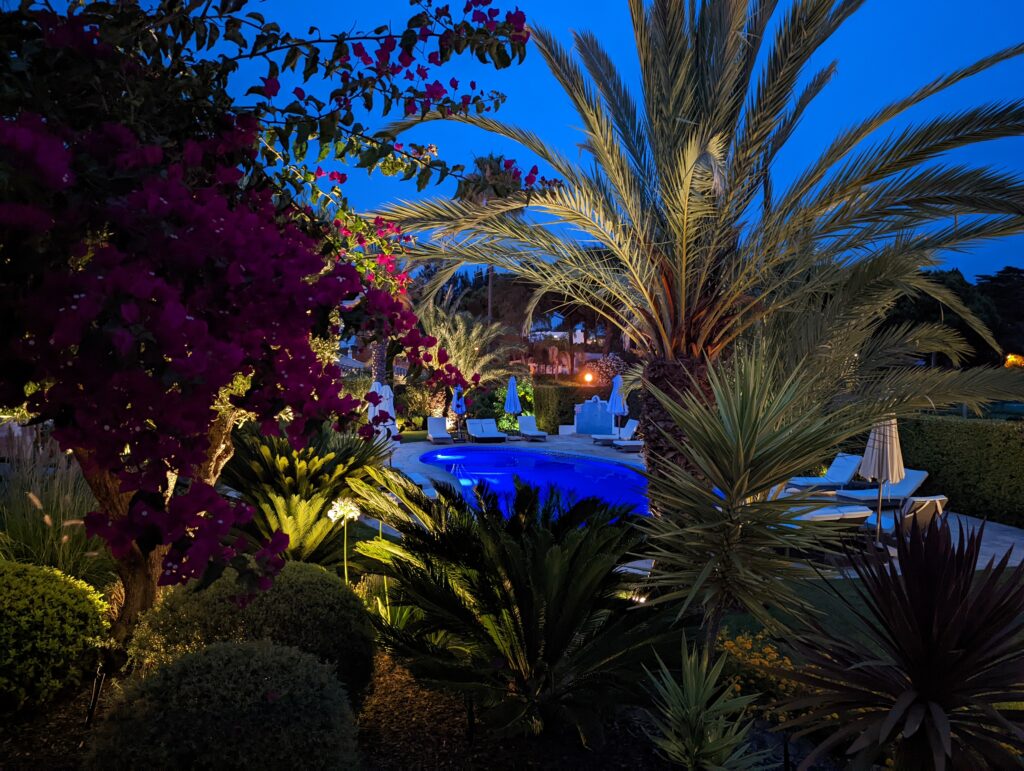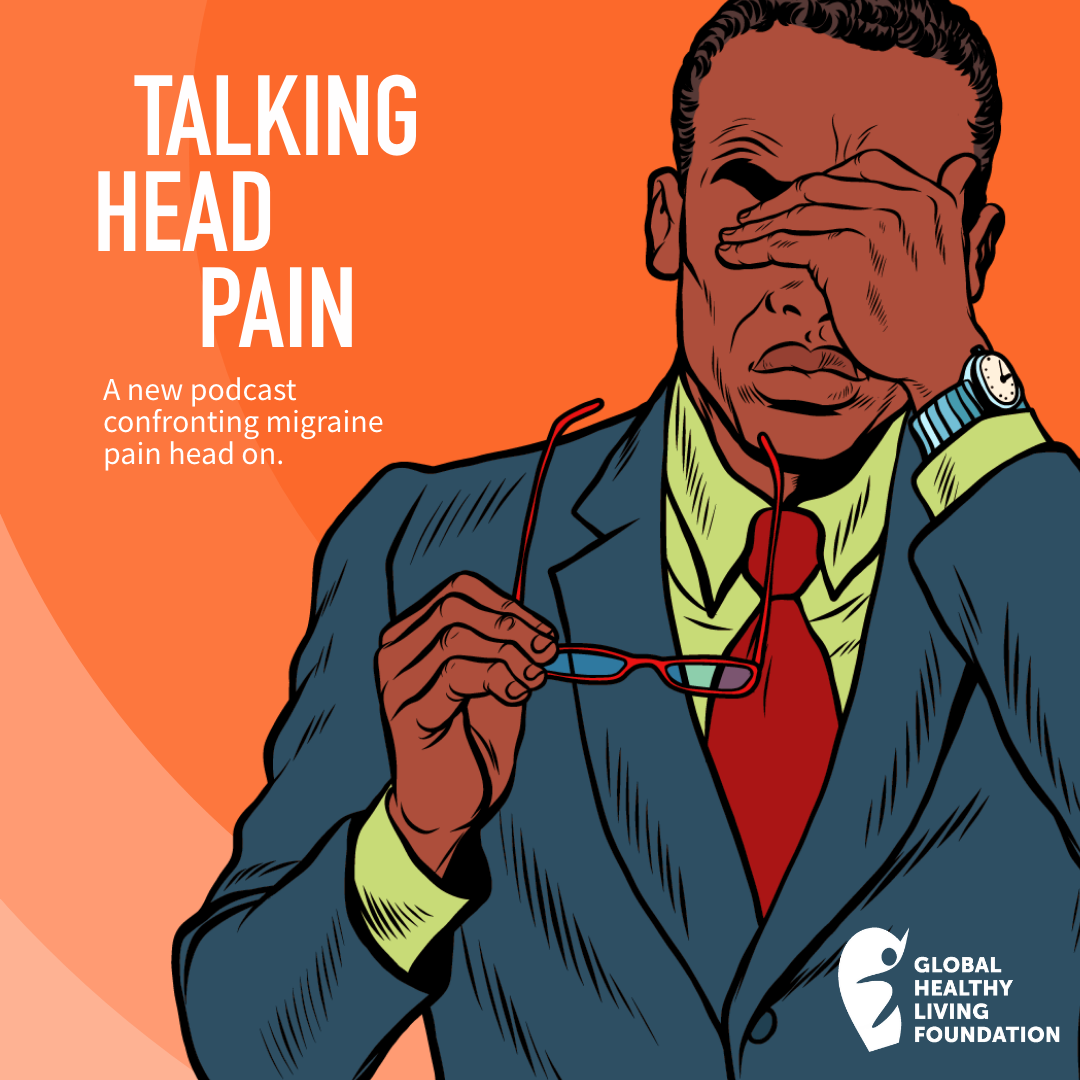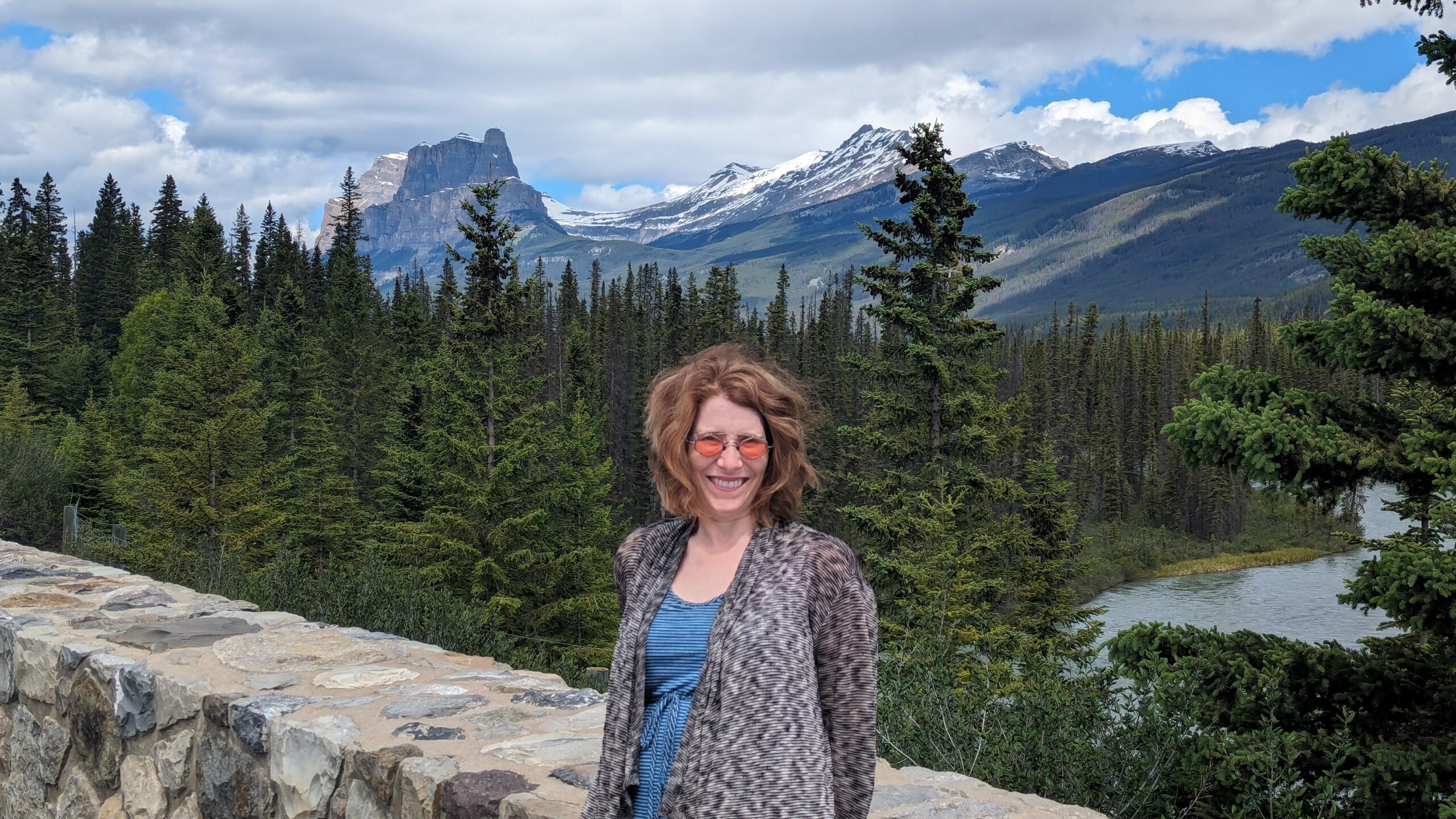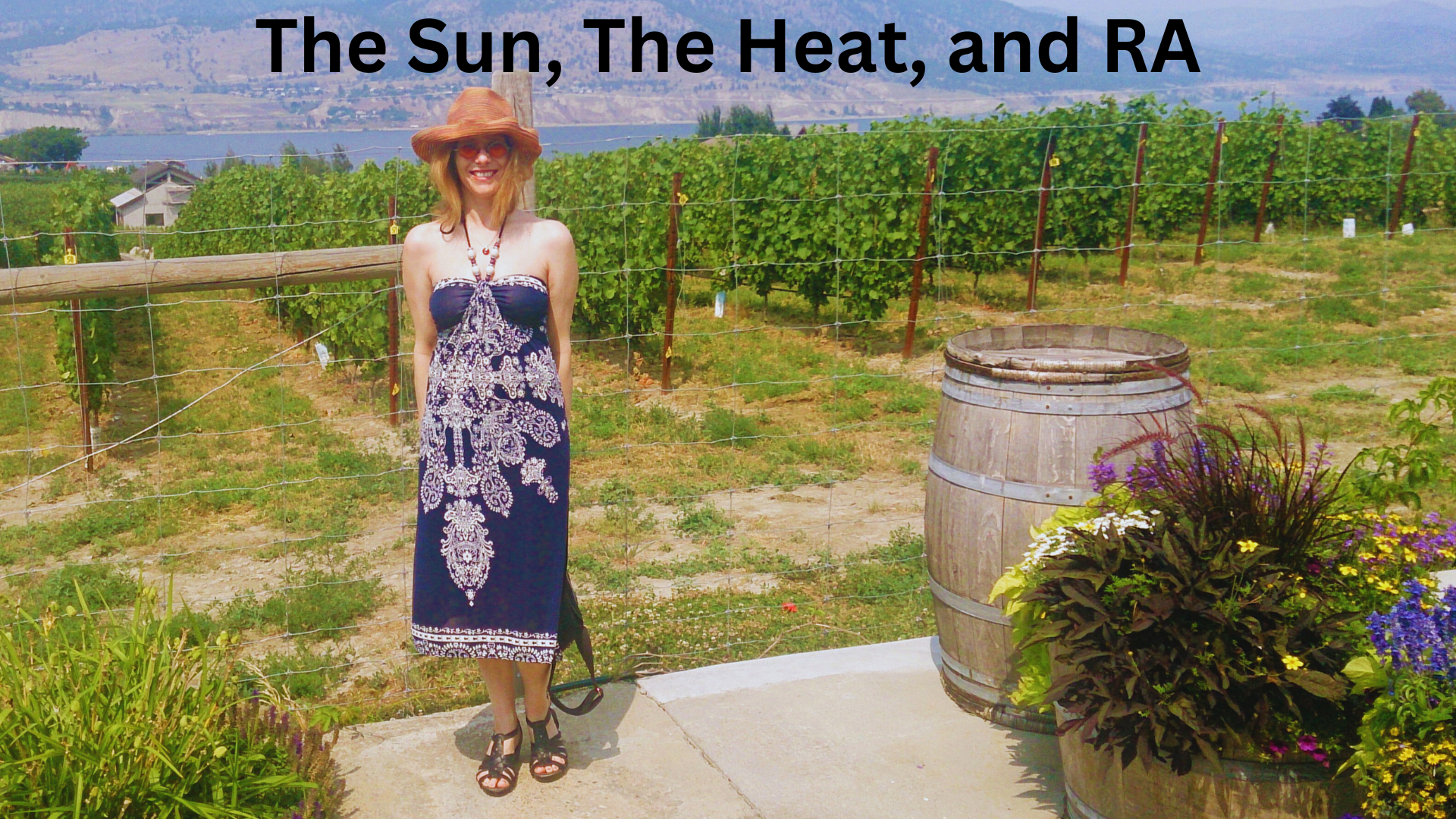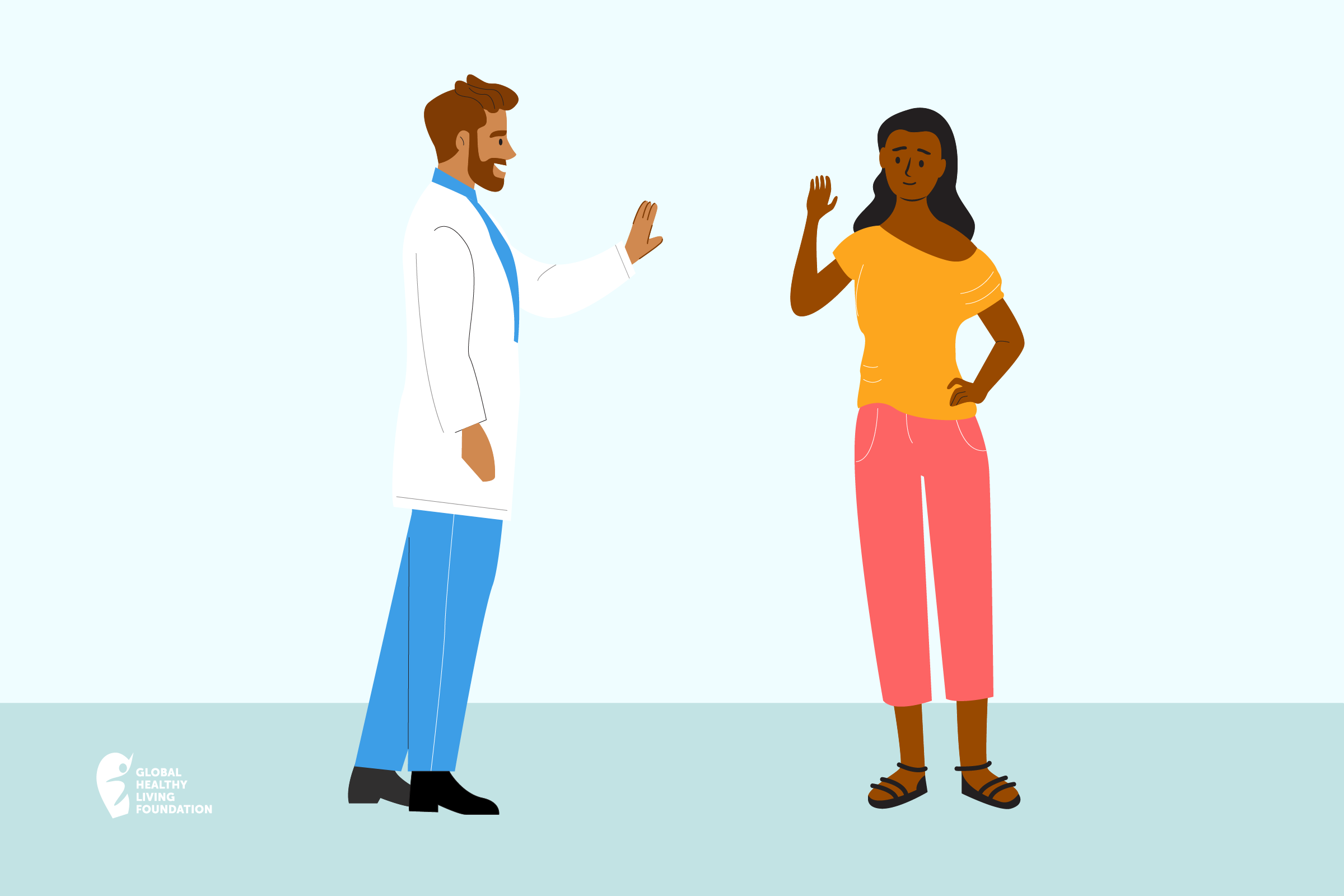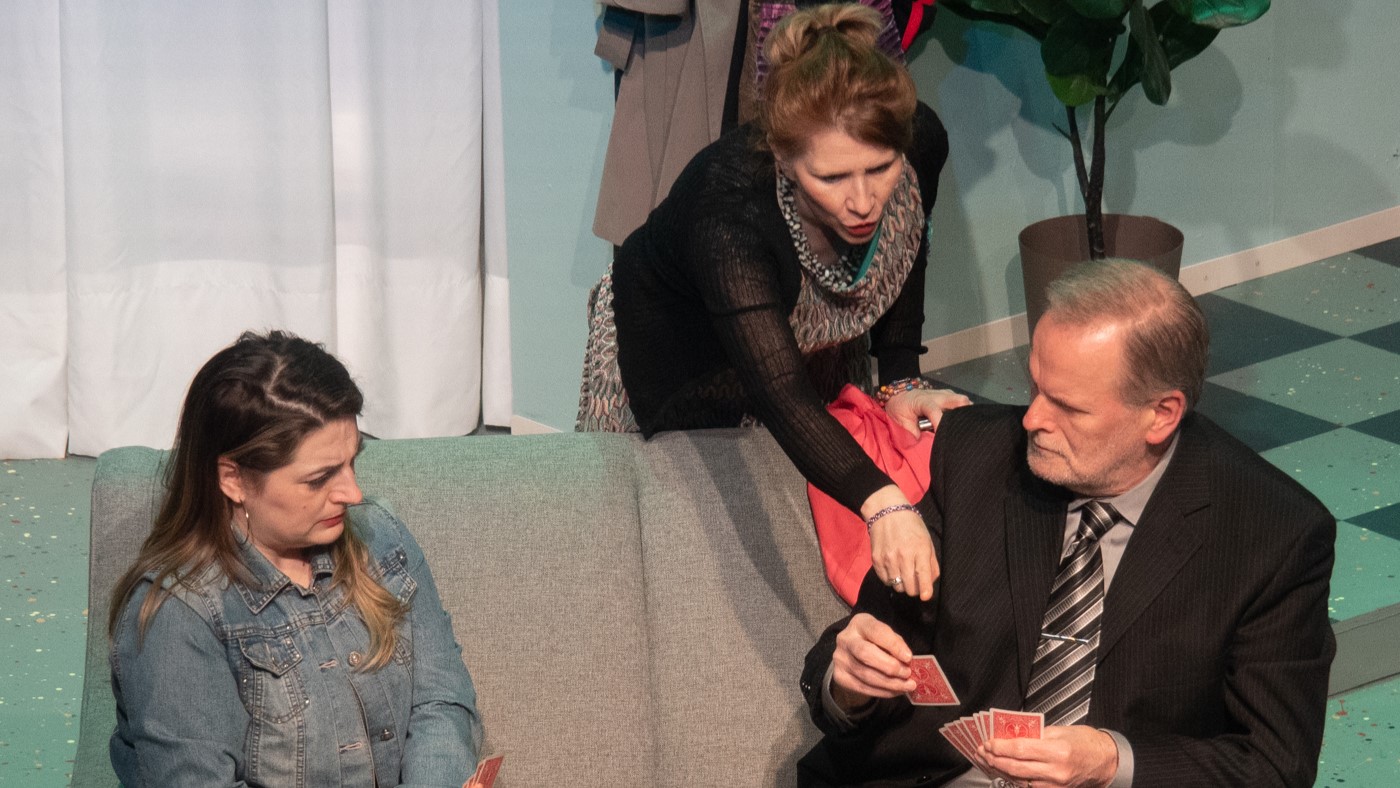It’s 3:00 am in Albufeira Portugal. The sky is a beautiful inkwell with pinpricks of starlight and a full moon keeps watch over a sleeping town. There’s supposed to be rain on the horizon, but as we wait for our driver to take us to the airport, there’s no hint of it — in the sky or in my body. I stand by the patio door looking out at the luminous garden and whisper a silent good-bye to the feral cats who will miss us tomorrow morning.
Our flight leaves at 6:00 am from Faro airport in Portugal — we have three flights to catch and a six-hour layover before we reach the shores of Vancouver and home. It has been a thoroughly relaxing holiday, a much-needed escape after two years of working in medical during a pandemic. The burnout is real, and I had little left to keep the flame burning.
Preparing to Go Home
Just as we had many preparations and precautions to take on our journey here, we had many of the same to travel back home. The most worrisome part of our trip home was the six-hour layover at the Lisbon Airport.
Unlike most of our trip, where we had little contact with crowds and people, the airport was a bit alarming. There were so many people, almost 90 percent unmasked, no intimate place to sit and eat, just a giant open food court reminiscent of a shopping centre. There seemed to be no place to distance and certainly the idea of sitting down and eating in that big open space was far from appealing — however, it would be hours before we could eat or drink again, so we had to do it.
Hand sanitizer, mask close at hand, and sitting at a table away from the multitude was the best we could manage. I was worried that with all the precautions we had taken, this moment would be our undoing where COVID was concerned. We were fortunate it was not.
Canadian airlines still have mask mandates in place, so for our trip home, we were confident that our safety and the safety of others would be maintained. At a time when airports and their services are extremely short staffed because of the trickling effects of COVID, we were prepared for long wait times going through customs and security and collecting our luggage. Somehow, we managed to avoid all the airline chaos, getting through security and customs in record time — and our luggage made it home with us.
Jet Lag
Jet lag is one of many conditions that can wake the sleeping beast of rheumatoid arthritis (RA), if RA did indeed sleep during vacation, as mine did — but on the day we flew back, I had a diverticulitis flare which stirred up the inflammation of RA. It was not the most comfortable trip home and terrible timing, since there was little I could do to relieve it. We passed through several time zones, spent 14 hours on three planes and by the time we arrived home, the exhaustion was overwhelming.
They say getting over jet lag will take as many days as time zones crossed. I gave myself a few extra days off to reset my circadian rhythm before returning to work. I took naps, took some time to get my medication schedule back on track, and allowed myself days of rest before leaping back into normal life.
Jet lag is nothing to take lightly — just like RA or other chronic illness, there are health issues that can arise. Jet lag can cause gastrointestinal issues, concentration issues, fatigue, and brain fog. It’s important to take time to reset the body clock, especially if you’ve returned from a big international trip. It took me four days to get over the jet lag from this trip before I returned to my normal routine.
Safety on the Homefront
Even though I am safely back home, I still followed protective protocols. Canada temporarily lifted random testing for international travellers, and there is no quarantine in place (since writing this, Canada has brought back random testing with 10 days isolation should it be positive). I followed the recommendation of masking in all public places for at least 14 days. My spouse and I did not exhibit any symptoms of COVID, but that doesn’t mean we didn’t have it. We monitored ourselves very closely and continued masking. We followed the same protective measures on vacation that we do at home, so it wasn’t much of an adjustment.
When RA Returns
The climate is different here in Vancouver then it is in Portugal, where we had nice dry heat that tempered my RA. When returning home, we left 25 degrees Celsius and sunny, and returned to a cool 11 degrees Celsius with overcast skies. The next morning, I woke up stiffer than I had been even before leaving for this trip. My body was exhausted from the travel and maybe a little bit shocked leaving the comforting dry heat and returning to a damp humidity. It took a few days for my body to readjust – there was some flaring, but eventually my body settled.
Bring It Back with You
When returning from vacation, it’s all too easy to fall back into regular patterns, and sometimes those patterns can be unhealthy, bringing back all the stress we carried before we took a break. Europe has a balanced lifestyle all figured out. They focus on different values, time spent with family and friends, not consuming all their energy for work.
North America has yet to figure out how to cultivate this way of life – they are still on some inexplicable race to see who can work the hardest and the longest. It comes down to quality of life and what we are willing to accept. If I can learn to evoke that vacation energy and bring it home with me, my life will be easier to manage and so will my RA.
You don’t have to go jet-setting all over the world to take a vacation. We can do the same things we would do on vacation at home. We can book time off to do the things we love. Take breaks and enjoy things in the places we live. Go out and explore your own city and/or town. Do the things tourists do — go to the beach, the lake, the mountains. Enjoy an afternoon outside with some food or drinks. Read on the patio or in the park. Take a picnic, do takeout of international foods to make it feel like you are somewhere new. The point is to take time off for yourself and find a balance.
There’s no reason we can’t take the same energy and mindset when on vacation and infuse it into everyday life.
Home Sweet Home
I have complicated feelings getting back to normal life after vacation — on the one hand I am always more comfortable in my own bed, in my home where I have my books, my work, and my family and friends. On the other hand, travelling allows me to see a different side of the world, meet new people, learn about life in other countries, and gain a new awareness of acceptance and understanding. Home is our refuge from an unforgiving world, but sometimes it’s necessary to escape it for little while, if only to appreciate it more when you return.
Stay in Touch with CreakyJoints Canada
Part of the nonprofit Global Healthy Living Foundation, CreakyJoints is a digital community for millions of arthritis patients and caregivers worldwide who seek education, support, advocacy, and patient-centered research. All of our programming and services are always provided free of charge. As we grow CreakyJoints Canada we want to hear from you. Please join our email list to stay connected, learn about new content and initiatives, and send us suggestions and ideas.

